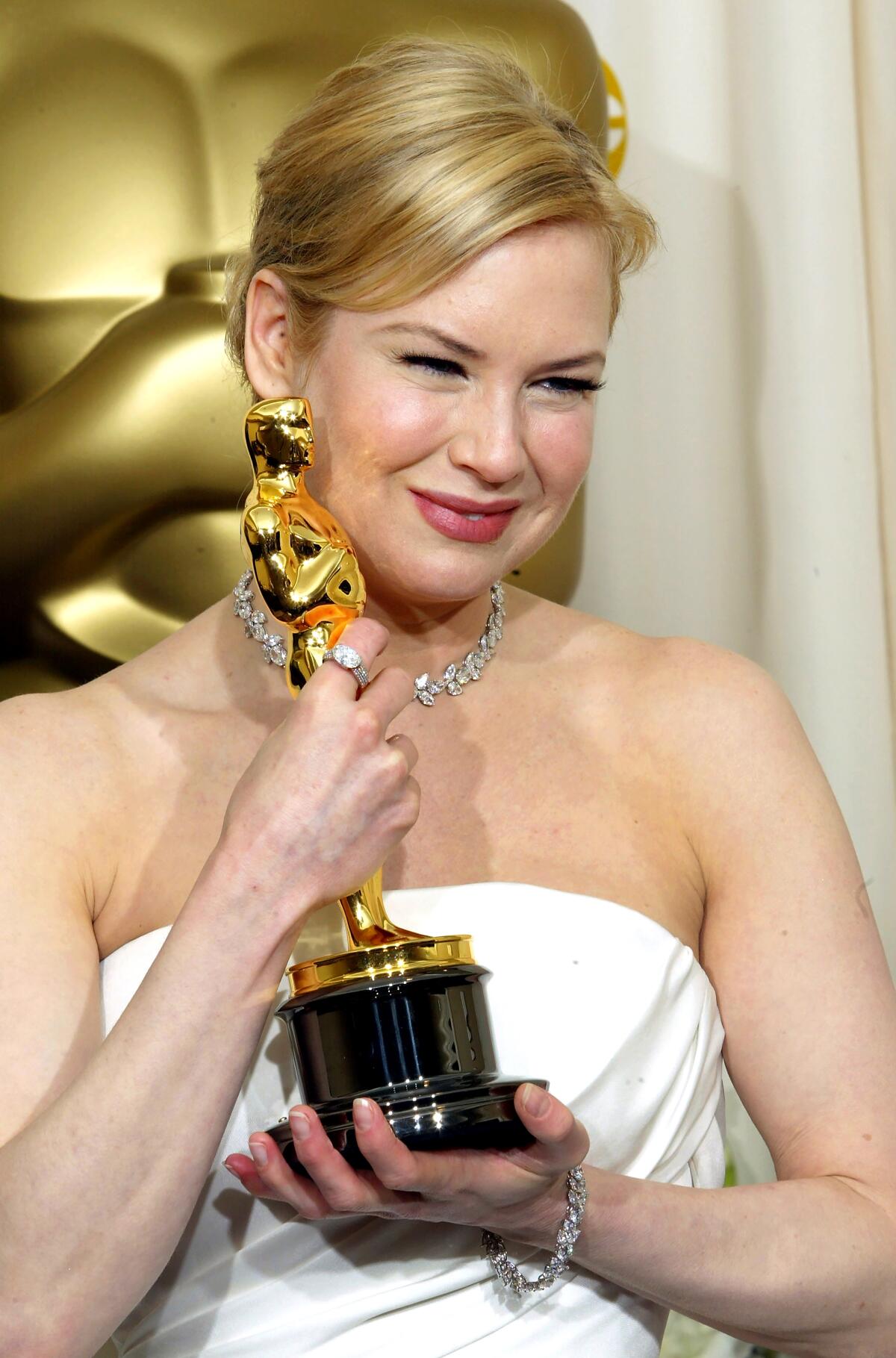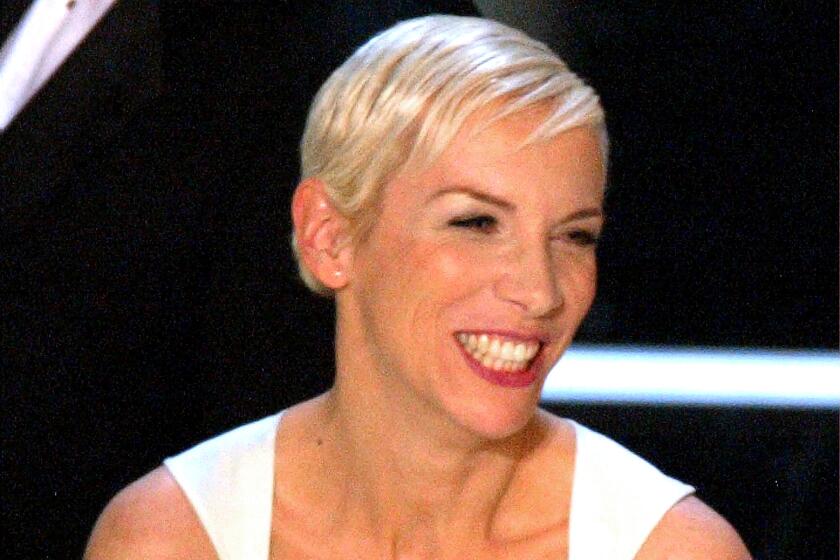Oscars Rewind — 2004: When a ‘Cold’ greeting is a good thing

- Share via
The third time was the charm for Renée Zellweger in 2004. Following two years of Academy Award nominations for other films that failed to materialize into actual Oscars, the Texas-born actor finally stuck the landing on Feb. 29 at the Kodak Theater in Hollywood, earning a supporting actress win for “Cold Mountain.”
Three years of nominations and two without winning might have been frustrating, but in the long run it could have benefited Zellweger, who went on to prove she was a viable nominee with versatility. Her first nomination came in 2002 as the romantic, yearning title character in “Bridget Jones’s Diary,” a largely comedic role. The second, as straight-shooter Roxie in “Chicago,” proved she could also sing and dance. But Oscar voters aren’t always friendly toward nondramatic performances. Then Zellweger got serious.
Dramatic play
Enter the part of scrappy Civil War farmworker Ruby in “Cold Mountain,” which allowed Zellweger to dig into a dramatic role while mercilessly stealing the show from co-star Nicole Kidman. It wasn’t a glamorous role, Zellweger admitted to People later, and she hadn’t seen the Oscar nom — and win — coming: “It’s not something you’re thinking about when you’re hauling timber and shoveling manure [on the set].”
But there she was at the Oscars, dressed in a white taffeta strapless dress from the designer she’s used almost exclusively at the Academy Awards, Carolina Herrera. This was the first of her eventual two wins (she’d go on to pick up her second Oscar, this time for lead actress, in 2020 for “Judy”). After Chris Cooper made the announcement that she’d won, Zellweger leaned over to give her seatmate a kiss before heading up onstage. That seatmate? Her longtime manager, John Carrabino. Onstage, she first thanked her “immigrant mom and dad” (Zellweger’s parents hail from Norway and Switzerland), then gestured at Carrabino and noted, “Without you there would be none of this. Thank you for dreaming so much bigger than I would ever dare to dream and for making me believe.”
The list of song nominees two decades ago included three rock ‘n’ rollers and two actors.
That said, the win was a product of the times, and hearing who else she thanked in her speech — future convict Harvey Weinstein and his studio, Miramax — now adds a bit of cringe into an otherwise glittering moment.
Youth wins out
Zellweger was the youngest nominee by about a decade in the category, up against veterans: Shohreh Aghdashloo (“House of Sand and Fog”), Patricia Clarkson (“Pieces of April”), Marcia Gay Harden (“Mystic River”) and Holly Hunter (“Thirteen”). This was the first nomination for both Aghdashloo and Clarkson. Harden was on her second nomination; her first (also for a supporting role) was a win in 2001 for “Pollock.” Meanwhile, Hunter held the most nominations of any nominee in the category that night: She has a 1994 lead actress Oscar for “The Piano” and supporting nominations for “Broadcast News” (1988) and “The Firm” (1994).
Though we didn’t know it at the time, Zellweger probably walked to the ceremony, as she revealed in 2020 that she tended to do. As she told Jimmy Fallon on “The Tonight Show,” “I don’t like to get in the car … the long limo ride. Because I don’t like getting out and it’s all crazy and people screaming and stuff. So I sneak in.” He followed up by asking, incredulously, “You walk to the Oscars?” and she nodded. “I walk to the Oscars.”
More to Read
From the Oscars to the Emmys.
Get the Envelope newsletter for exclusive awards season coverage, behind-the-scenes stories from the Envelope podcast and columnist Glenn Whipp’s must-read analysis.
You may occasionally receive promotional content from the Los Angeles Times.











